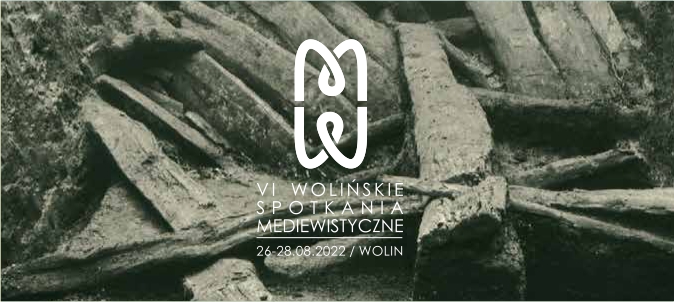The Commune of Wolin, Andrzej Kaube Institute of Archaeology and Ethnology of the Polish Academy of Sciences in Wolin and the National Museum in Szczecin are invite you to the jubilee conference "Cities which Created Europe. 70 Years of Polish Archaeological Research in Wolin ”.
The meeting is to be held in Wolin on August 26th - 28th 2022.
Early-mediaeval Wolin is a junction point in the history of Central and Northern Europe. Being one of the largest craft and trade centres by the Baltic Sea in the 9th-12th centuries, it played a crucial role in the history of northern Europe. This multi-ethnic center became an object of interest to kings, envoys and Latin, Arab and Scandinavian historians. The power of the city grew with legends of the Viking fortress of Jómsborg and the sunken city of Vineta. Wolin was one of the cities that influenced the face of Europe and created it.
Polish archaeological research in Wolin began in 1952. Since 1953, they have been run by the Institute of Archeology and Ethnology of the Polish Academy of Sciences. Within 70 years, an impressive number of monuments and a huge amount of data have been acquired, being vital records of European history. The monuments were presented at numerous exhibitions both in Poland and abroad. Three generations of Polish scientists in the course of interdisciplinary research published hundreds of works, writing the history of the city on the pages of history textbooks.
The jubilee conference aims to summarise this successful time and to highlight the role played by early mediaeval Wolin in the history of northern Europe. It will take place as part of the 6th Wolin Mediaeval Meetings, the tradition of which is to present the history of Wolin in the broader context of the research on Middle Ages. The conference will present past achievements, works in progress and future directions of research on the phenomenon of early-mediaeval Wolin. At the same time, considerations will be made on the role of early-mediaeval urbanisation in shaping the face of contemporary Europe. The planned conference will be a celebration of Polish science, its international promotion and a meeting of leading European scientists
The conference will be a meeting of scientists studying the early Middle Ages and, at the same time, it will initiate the celebration of the 70th anniversary of the Institute of Archaeology and Ethnology of the Polish Academy of Sciences, which will take place in 2023. 19 papers will be delivered, showing both the results of research on early-mediaeval Wolin, as well as on other important contemporary urban centres of northern Europe. The papers will be the starting point for a discussion on the topic of the conference, as well as for a debate with the participation of Polish and foreign scientists. For this reason, a relatively small number of papers is counterbalanced by the participation of numerous researchers from all over Europe (Norway, Denmark, Sweden, Germany, Ukraine, Spain), who will take an active part in the discussion and learn about the achievements of Polish science.
The conference will be held at the site of the planned new Wolin museum. Due to the great, pan-European importance of the city's history, the Andrzej KaubeRegional Museum in Wolin, together with the Institute of Archaeology and Ethnology of the Polish Academy of Sciences in Wolin, ICOMOS Poland, the Provincial Office for the Protection of Monuments and municipal authorities are making efforts to enter the city on the list of Historic Monuments and UNESCO World Heritage List. The jubilee conference will increase the range of these activities. The event is held under the honorary patronage of the Deputy Prime Minister, the Minister of Culture and National Heritage Prof. Piotr Gliński, Deputy Minister of Infrastructure Marek Gróbarczyk and the Voivode of West Pomerania Zbigniew Bogucki.
The conference will be translated simultaneously (Polish-English; English-Polish) and recorded as video and with the use of the innovative method of the so-called graphic recording. Each of the papers will be presented graphically, which will enable an accessible presentation of its results on the Internet, and the original drawing will be submitted to the Andrzej Kaube Regional Museum in Wolin.
The presentations will be published in the post-conference volume, which may become a reference point for researchers of the early Middle Ages in Europe.
Detailed schedule may be found in the BROCHURE.
